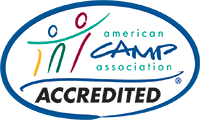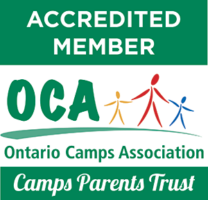Remembering Dan Carpenter Sr.’36
It is with great sadness that we announce Dan Carpenter Sr.’s (’36) passing on August 21, 2013. His son, Dan Jr., writes, “Even at 91 years old, his loss was sudden and unexpected. His body simply wore out, but his spirit and love for his family remained steadfast right until the end.” Dan devoted 34 […]
Songadeewin Director on Vermont Public Radio
Ellen Flight, Director of Songadeewin and President of the Vermont Camping Association, joined Jane Lindholm on the Vermont Edition of Vermont Public Radio to discuss summer camp traditions, lessons, and adventures. Listen to the show and share your experience at one of Keewaydin’s camps!
Talking Metaphors with John McPhee ’37
By Jennifer Altman Published in the July 10, 2013 issue of the Princeton Alumni Weekly Joel Achenbach ’82, a longtime writer for The Washington Post, was perched on a stage next to Ferris Professor of Journalism John McPhee ’53, recalling the day McPhee handed him back his first writing assignment. “The paper came back, and there were […]
Thank You!
A BIG Thank You to All Who Supported KEEC’s Spaghetti Dinner!
Earth Day Will Help Your Health
Celebrate Earth Day Everyday! Recently a number of articles have surfaced publicizing research that indicates cognitive, physical and emotional advantages to spending time immersed in nature. Admittedly, it can be challenging to get outdoors everyday and perhaps sending your children out the back door is a thing of the past, with encroaching roads, disease carrying […]
Spaghetti Dinner to Benefit Vermont Schools
KEEC Style Spaghetti Dinner! All are welcome, proceeds go to offsetting the cost of KEEC for Vermont schools!
Expedition 2012 make’s the Year-End Update in Vermont’s Seven Days Newspaper
To read the update, and hear more about the Crew post Expedition, click here : Vermont Canoe Paddlers Complete 1200-Mile Voyage to Canada’s James Bay | Seven Days.
2012 NYC Alumni Reception a Huge Success
Monday, October 22 was a truly magnificent evening for Keewaydin at the Yale Club in New York City. Thank you to all who could attend and those who contributed. Highlights included recognition of the Expedition 2012 crew, a presentation of a Memorial Service Award to Anthony M. Schulte’s family, and the presentation of the 2012 Keewaydin Service Award to […]
July 28, New York Times: Blissfully Lost in the Woods
An op-ed recently appeared in the New York Times that affirms the value of the wilderness (i.e. Keewaydin) experience: Blissfully Lost in the Woods
Expedition 2012’s Return in the Addison Independant
CLICK HERE TO VIEW THE FULL ARTICLE!



